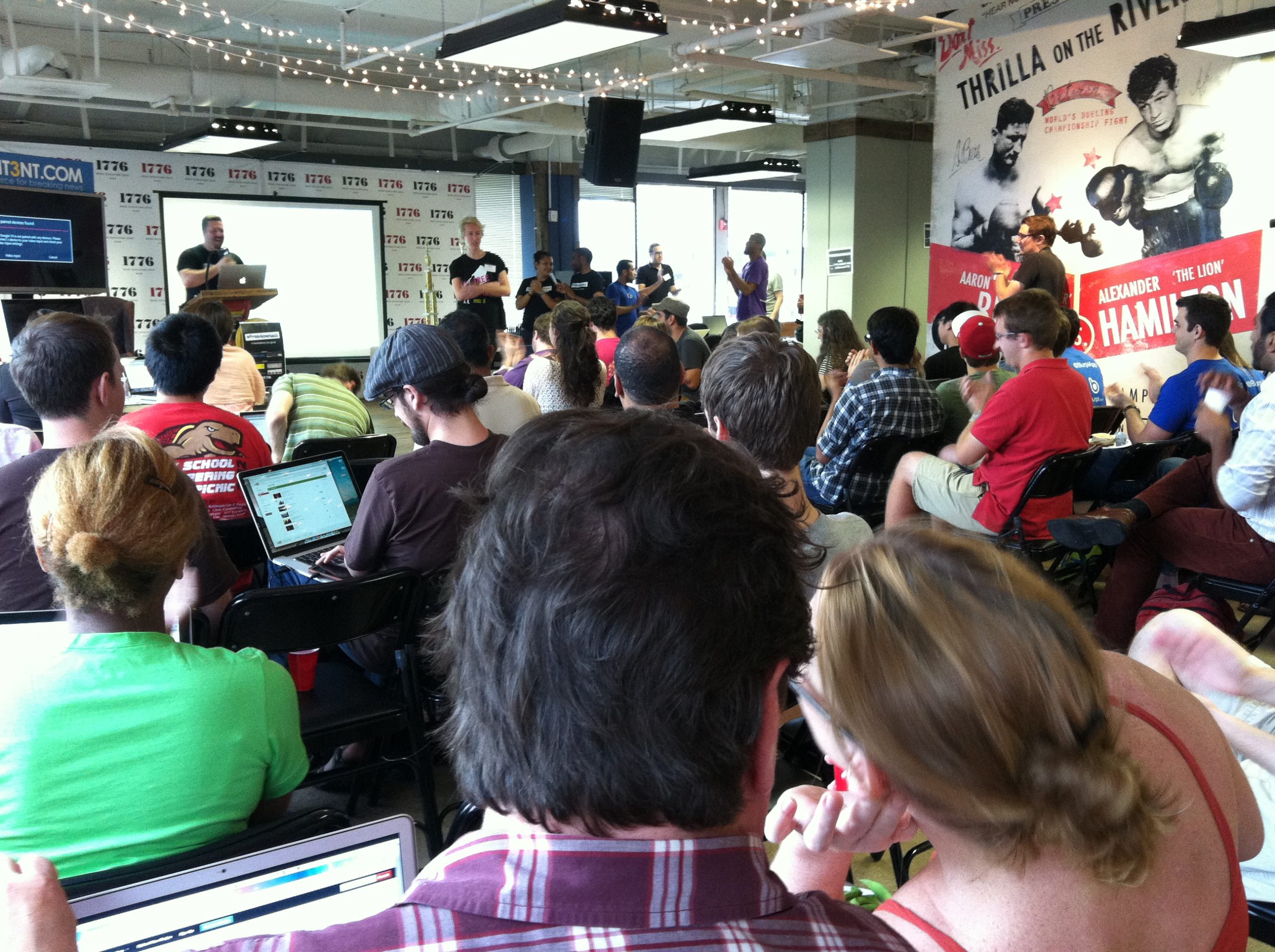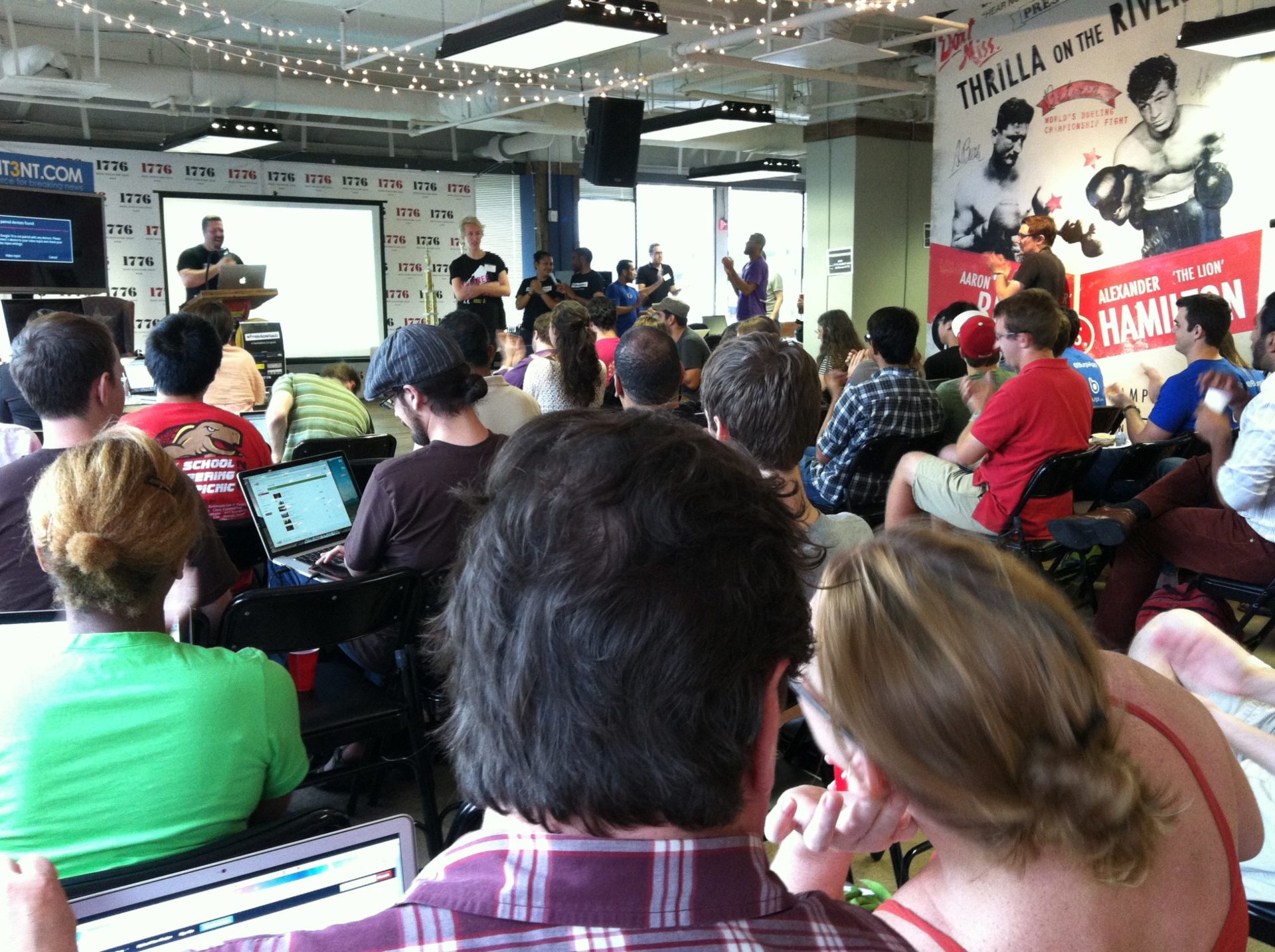
Developers, activists, and journalists gathered in a Washington startup incubator on a recent weekend for “FreedomHack,” to build digital products to aid citizen journalists in Mexico. Reporters Without Borders reports that a skyrocketing number of them have been killed, attacked, or threatened in Mexico since 2010.
One kind of program that could be useful to reporters in violent areas who are operating under oppressive regimes is one created by Dlshad Othman, the event’s keynote speaker. An exiled Syrian activist, Othman has personally aided more than 11,000 people by deactivating e-mail and Facebook accounts to keep governments from getting their hands on journalists’ data.
His product, Virtus Linux, launches this September, and was built through an analysis of Syrian Internet monitoring systems. It is an encrypted operating system that supports three languages – English, Arabic, and Kurdish – and lets citizen journalists and activists freely search the Web, upload content, and send messages. It currently has more than 1,500 users.
The “hack for good” event was organized by Washington-based tech startups CommunityRED, which delivers secure technology solutions to citizen journalists globally, along with the freelance journalists’ network Cont3nt.com. Event partner Amnesty International contributed resources to help developers understand the plight of colleagues in Mexico.
“We’re tapping into a community of people who want to do good, which shouldn’t surprise anyone in this city,” said a weary-eyed Shauna Dillavou, director of CommunityRED, who stayed overnight in the incubator to assist hackathon teams. One challenge was that developers and activists speak different professional “languages.” Overcoming that barrier, she said, enabled developers to better cater products to the activists’ needs.
Journalists in Mexico City and Chihuahua, still in the midst of conflict, Skyped live into the event, giving it a “real-time” sense of urgency, said hacker Ivan Melyakov. “We knew there would be journalists there,” he said, but added that he expected only to hear reports from those who had escaped conflict.
Dillavou said the Mexico-based reporters and activists were “scared shitless” that NSA or CIA members or other government officials were present, and cagey about trusting the hackers at the other end of the screen with their stories or information. Pre-existing relationships that both groups had with Amnesty International helped them establish an open rapport.
The winner of the Hackathon was an app called “Awesome Security.” An add-on to Panic Button, an existing Amnesty International program that automatically dials for help, Awesome Security extends use to citizens who live in unsafe areas where local police can’t be trusted, or who live alone and need backup security, or who might need help when out in the field alone.
The initial Panic Button allowed users to click on an app to send a pre-selected group a cry for help by broadcasting the users’ GPS coordinates. The improved Panic Button allows users to set a timer in advance. If a person is entering a dangerous situation, that person can set the Panic Button to activate in a programmed amount of time, and also broadcast the message through Twitter messages and encrypted e-mails. The user can now also pre-set the text of the message.
Angela Chang, Amnesty International advocate, said the Panic Button technology has changed her organization’s role from facilitator to connector, helping people empower themselves in dire situations rather than seek Amnesty International help.
CommunityRED and Amnesty International will deploy the new products in Mexico on a trial basis first, and then will refine them to secure holes.
Unlike a typical hackathon, this one offered no monetary prizes, Dillavou said. The mission was simply “to help someone somewhere,” she said.
A second FreedomHack is planned for November. Whether it will be in Washington or Mexico remains to be seen: Dillavou sees plenty of demand for a Mexico City hackathon, but worries there might not be the same level of trust for participants to speak freely in a venue in Mexico.
She said that Mexico’s proximity made it an easy choice as a FreedomHack pilot country, but added that “it’s a testing bed to build a community to help anyone, anywhere.” Apps developed here may show up around the world.
“Good Hackers” Gather in Washington to Help Besieged Journalists
Developers, activists, and journalists gathered in a Washington startup incubator on a recent weekend for “FreedomHack,” to build digital products to aid citizen journalists in Mexico. Reporters Without Borders reports that a skyrocketing number of them have been killed, attacked, or threatened in Mexico since 2010.
















